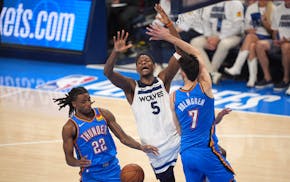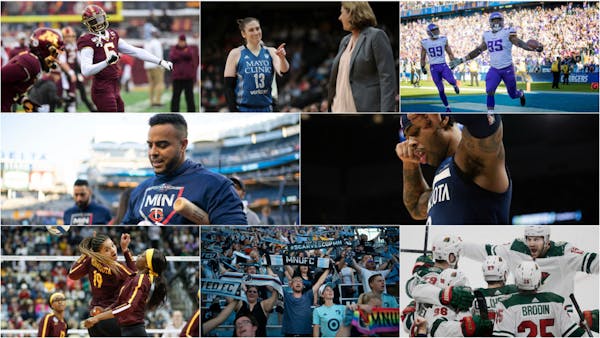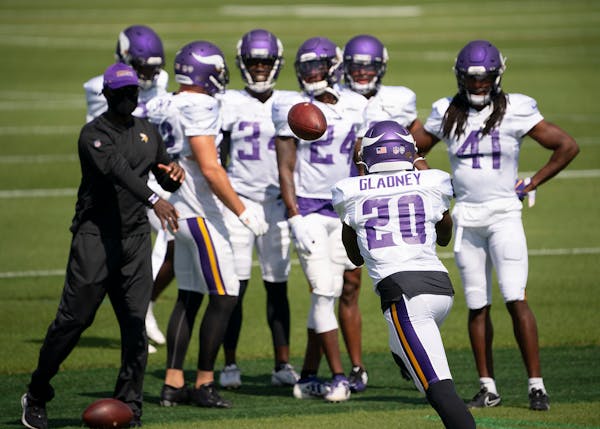The Vikings' trade for Yannick Ngakoue looks like a smart move on many levels, one that should improve a good defense and could alter the future of a needy offense.
The Vikings acquired a prolific young edge rusher who specializes in forcing fumbles for a couple of draft picks, after acquiring a few picks in the Stefon Diggs trade. If you want to view these deals as essentially a trade of a talented receiver who didn't want to play for the Vikings for a disgruntled defensive end who is willing to take a pay cut to play for the Vikings, that's a win for the organization.
The Vikings will get to bookend Ngakoue with the great Danielle Hunter, and while this development is not ideal for Ifeadi Odenigbo, who expected to play that role, the increased quality depth at defensive end will give the Vikings the ability to rest their pass rushers or employ extra rushers on the line in obvious passing situations.
Odenigbo is a fine young player, but he is relatively undersized and could be better as a part-time player than a starter — and he excelled as a part-time player in 2019.
An improved pass rush could be ideal for a group of young cornerbacks who will be tested all season, especially with the season starting with an important game against Aaron Rodgers and the Packers.
There is another, more cynical way that the trade for Ngakoue could benefit the Vikings:
It could keep them from making a mistake in signing running back Dalvin Cook to a long-term contract.
I feel guilty even typing that sentence. Cook is a wonderful player and a team leader. He puts himself at risk every time he touches the ball, and sometimes when he doesn't. If the word "deserves" applies to professional sports, then Cook deserves to be compensated as the Vikings' best offensive player and the player around whom they built their offense.
But the Vikings aren't in the business of paying players what they "deserve." They are in the business of winning games while staying under the salary cap, and Ngakoue's arrival could mean the end of meaningful negotiations with Cook.
After trading two draft picks for a key player, the Vikings are bound to try to sign Ngakoue to a long-term deal. After negotiations between the Vikings and Cook faltered, this gives General Manager Rick Spielman reason to not resume those talks.
And, cynically, that could be great for the franchise.
If the Vikings had paid Cook what he believes he's worth, the extension probably would have totaled something like four years and about $50 million.
Is Cook worth that? Only if he remains healthy and productive and retains his current level of explosiveness, and fits into the team's salary structure while NFL teams face the possibility of a reduced salary cap because of financial losses caused by the pandemic.
If Cook gets injured or loses a step, he would look something like current backup Alexander Mattison — a fine young player unlikely to ever command $50 million.
If the Vikings don't sign Cook to an extension, Cook will be highly motivated to prove his worth this season, and if he excels again, the team could retain him for another season by placing the franchise tag on him.
Instead of signing him for four more years and praying he can stay healthy and explosive, the Vikings will get Cook for a cap-hit figure of about $2 million this year. That's bad for Cook but great for the Vikings.
If Cook performs so well this season that the Vikings feel compelled to sign him to a long-term deal, they can find a way. NFL teams always find a way to sign the players they most value, unless they're so dysfunctional that players want out.
Having two dynamic, productive 25-year-old edge rushers is ideal for Mike Zimmer and his defensive staff, and provides a better way to build a winner than throwing money at a running back, even if the running back is the exceptional Dalvin Cook.

Souhan: Anxiety and depression in the NFL helped inspire Lindsey Young's children's book
Souhan: For Lynx star Napheesa Collier, 'Phee' is just fine
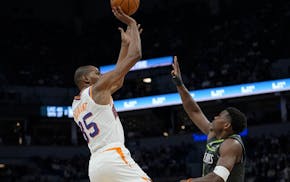
Souhan: Will the Wolves trade for Kevin Durant? Should they?
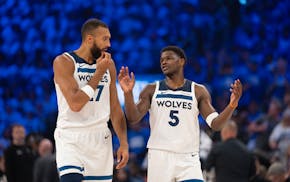
Souhan: If Edwards is a franchise player, he needs to act and play like it
